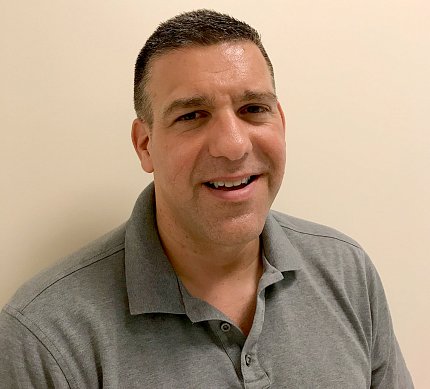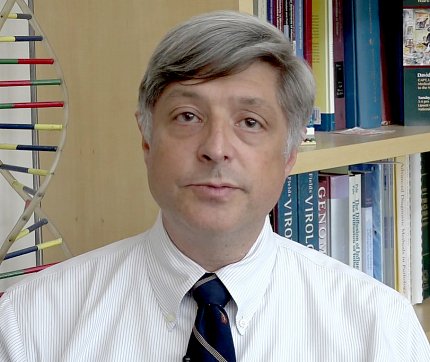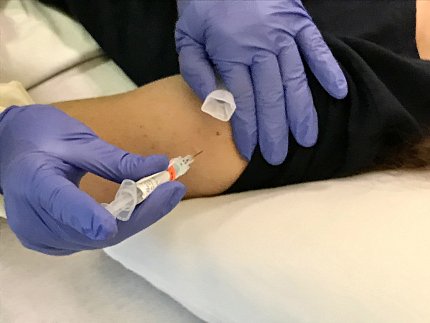Trial Opens for Potential Universal Flu Vaccine

NIH investigators have begun testing a universal influenza vaccine designed to protect against a wide range of seasonal flu viruses and those with pandemic potential. A phase 1 clinical trial of this novel flu vaccine has begun inoculating healthy adult volunteers at the Clinical Center.
The placebo-controlled trial will test the safety of a candidate vaccine, BPL-1357, and its ability to prompt immune responses. The vaccine candidate was developed by NIAID researchers. The single-site trial, led by NIAID investigator Dr. Matthew Memoli, can enroll up to 100 people ages 18 to 55 years.
The BPL-1357 candidate influenza vaccine performed well in preclinical studies and now will be tested in people. BPL-1357 is a whole-virus vaccine made up of four strains of non-infectious, chemically inactivated, low-pathogenicity avian flu virus.

A study in animals led by NIAID investigator Dr. Jeffery Taubenberger found that all mice receiving 2 doses of BPL-1357 vaccine delivered either intramuscularly or intranasally survived later exposure to lethal doses of each of 6 different influenza virus strains, including subtypes that were not included in the vaccine. Similar results were obtained in challenge experiments with BPL-1357-vaccinated ferrets.
In the phase 1 trial, volunteers will be randomized in a 1:1:1 ratio into 3 groups and will receive 2 doses of placebo or vaccine spaced 28 days apart.
Group A participants receive BPL-1357 intramuscularly along with intranasal saline placebo; group B will receive doses of the candidate vaccine intranasally along with intramuscular placebo; volunteers in group C receive intramuscularly and intranasally delivered placebo at both visits to the clinic. Neither the study clinicians nor the volunteers know the group assignments.

Photo: NIAID
“With the BPL-1357 vaccine, especially when given intranasally, we are attempting to induce a comprehensive immune response that closely mimics immunity gained following a natural influenza infection,” said Memoli. “This is very different than nearly all other vaccines for influenza or other respiratory viruses, which focus on inducing immunity to a single viral antigen and often do not induce mucosal immunity.
“Our study will examine the safety of BPL-1357,” he added, “and also will allow us to assess the importance of mucosal immunity against flu and whether a strategy of inducing both the cellular and antibody arms of the immune system can provide broader protection against the ever-changing influenza virus.”
